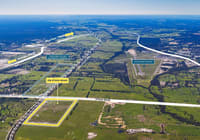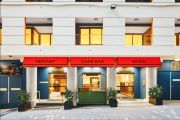
Harry Triguboff carves out his build-to-rent portfolio
Australia’s richest developer, Harry Triguboff, will boost his portfolio of build-to-rent (BTR) apartments by 14 per cent over the next year and a half as foreign students and migrants return to the country’s largest city with the reopening of international borders.
Mr Triguboff will also rebrand his 4860-strong portfolio of commercial rental units as Meriton Build for Rent, to distinguish a portfolio he has been building for 20-plus years from those of rivals including Mirvac and – in months to come – Lendlease.
“Meriton has been in the build-to-rent space for more than two decades, something that has not been widely recognised,” Mr Triguboff told The Australian Financial Review on Thursday.
“Nobody knows about it. They know about me selling units. But we have always been leasing.”
The 659 build-to-rent units under construction are fewer than the 2073 build-to-sell units also under construction, and also fewer than the 1010 Meriton Suites that the sixth-richest Australian is also building – to boost his existing 5000-strong portfolio of hotel rooms.
But build-to-rent gives Meriton flexibility in its 10,000-odd unit portfolio to convert those units into the traditional build-to-sell market at any point and to benefit from capital gains of the properties in a way it cannot make from the commercially zoned Meriton Suites.
Still, with the rental market strengthening and average rents across the portfolio rising from the pandemic low of about $600 per week to between $650 – $700 currently – and a 1.2 per cent vacancy rate across the portfolio -the company has no plans to sell down its rental stock, sales director James Sialepsis said.
“When we’re talking a 5-10 plan, it’s highly unlikely we’ll convert,” Mr Sialepsis said.
The decision to create Meriton BFR was not linked to any plan to bring in third-party capital to speed up construction of the portfolio as the company had all the funds it needed to deliver the volume of stock it wanted, he said.
“Harry’s steered away from joint ventures,” Mr Sialepsis said.
As a local company investing in BTR, Meriton has an advantage over foreign investors in the asset class, whose investments are hit with a 30 per cent withholding tax, rather than the 15 per cent applied to other commercial residential investments such as student accommodation and hotels.
The commercial property industry had hoped the government would even up the tax status in last month’s federal budget – as a recent Parliamentary committee report recommended it should – but the government’s failure to do so was a benefit for Meriton.
“It definitely strengthens our position, but you also have to look at that tax and ask how would mum-and-dad investors feel if they have a unit in a particular suburb and pay 30 per cent – 40 per cent tax on the income, only to have some BTR company come along and only pay 15 per cent tax?” Mr Sialepsis said.
“It’s a very unlevel playing field.”
Apart from the dwellings currently under construction, Meriton also has 4000 build-to-sell units planned, a further 2000 build-to-rent units planned and another 400 Meriton Suites also planned for future construction.











